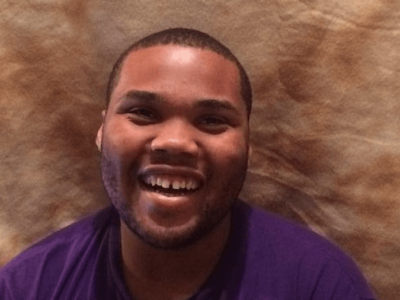Accepting my identity as biracial—Hispanic (Panamanian) and African American has been a challenge all in and of itself. Growing up I never knew that I was biracial, with an African American mother and uninvolved Hispanic father. Black culture is all I grew up to know and associate as who I am. Thanks to genetic variation, I didn’t fit the common notion that many have of most “mixed” kids—no 3a-3b loose curls for hair nor light translucent eyes for me.
Identifying as only African American has been my norm for the majority of my life. It wasn’t until I started college that my perspective became clearer. I began to accept both pieces of the puzzle that create me. I began to understand that I can’t deny a part of my identity because my dad denied me. He’s most likely living his life, so I should do the same.
My Hispanic friends advised me to submerge myself into the culture. They encourage me to speak Spanish as much as I can. In fact, one friend, will only respond to me in Spanish. Another friend has invited me to a few Central American centered clubs here at the University of Florida so I can expose myself to the specific region’s culture.
I’m a mess of mixed-emotions at this point, but I know as I continue to keep an open mind and allow everything to be natural, what I feel now will be a thing of the past. I think Hispanic Heritage Month will be one of the biggest things for me to grasp. I’m so used to celebrating Black History Month, it will be a surreal moment to embrace another month rich in culture and history.
I’m sure plenty of people are in the same shoes as me. While I was unfamiliar and somewhat hesitant to embrace both cultures that make up who I am, many are not. Instead of assuming or generalizing such a broad topic, I decided to turn this monologue into a dialogue—sharing insight and personal experience from other biracial students.
University of Florida freshman Sabrina McClain embraces both African American and German heritage. “I raise my fist high when it comes to Black power, just as much as I speak in German to my mom and rep the German soccer team,” McClain said.
But that doesn’t mean the biracial experience doesn’t come with its own set of challenges. “It is challenging because I don’t technically consider myself Caucasian—ever. I know that German is a descent of it, but it’s two different things,” McClain said. “It’s challenging because the way I view myself doesn’t change the way the world looks at me and other biracial people. But at the end of the day—that doesn’t matter. I am who I am, and nobody is going to stop me from eating my soul food or German food.”
Katlynne Jones, a sophomore at UF, considers being biracial an advantage since she can understand different perspectives more easily. “I’m grateful for the experiences of my childhood because I see both sides. I am very aware of the struggles that different types of people may be going through. I empathize with people based on where they came from and what previous life experiences they might have had.”
And college only enriches that experience. Jones continued, “While in college I am happy that I’ve had the privilege to meet people who are different than me and it has helped me even more to see and understand other people. I haven’t had any bad experiences due to my race so far. Mostly, people just are curious and ask me what race I am. I think it’s important to be tolerant to other people’s curiosity.”
Being biracial seems to back you into a corner at times—forcing you to see only one side. However, many of us are blessed enough to experience diverse cultures that facilitate our growth and self-discovery. Though mine came at a much later date than some—it’s better now than never. I don’t reject all of me just because I was once rejected. Instead, I’m taking steps to discover more of who I am—who knows maybe I’ll be a natural at “Cumbia” or “El Punto.”



















